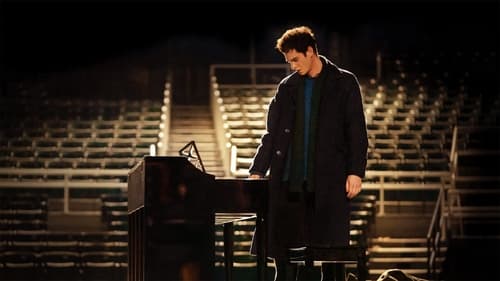Smittad: När HIV kom till Sverige (2012)
Жанр :
Время выполнения : 0М
Директор : Dylan Williams
Краткое содержание

1990 год. Молодой композитор Джон работает официантом в нью-йоркской забегаловке. Параллельно он пишет мюзикл «Супербия», который, как он рассчитывает, в будущем станет новым хитом Бродвея и позволит ему вырваться из нищеты. В жизни Джона всё непросто. Его девушка Сюзан устала ждать, пока бойфренд добьется успеха, а лучший друг оставил мечты и устроился на престижную работу в рекламном агентстве. Джону скоро исполнится 30 лет, и он начинает переживать, что впустую потратил все эти годы.

After the Stonewall riots and at the height of the gay liberation movement in America, an entire generation were busy celebrating their newfound emancipation, unaware of an impending epidemic. A disease that seemed determined to wipe out an entire generation of gay men, was largely ignored by politicians and the mainstream media. Gaetan Dugas was a French-Canadian flight attendant, who offered to help early scientific research into the origins of AIDS. An unfortunate series of events followed and he would be vilified as Patient Zero, the man who gave us AIDS.

A reality in which the definitive cure for HIV-AIDS has been found. The government, through the media, makes the announcement official and with it begins protocolization campaigns for HIV-AIDS immunity. But what about people who are already infected?

Kate, Anton, and Keith, three young artists in New York's art scene of the early 1980s. An intimate glimpse into the creative and emotional lives of the young and carefree. They party, photograph, paint, sing, and play their way through the clubs and lofts of Alphabet City. The party ends in 1984 when Anton and Keith contract a mysterious illness known as the "gay cancer." As her music career takes off, Kate tries to save her friends.

A musical documentary accompaniment to the 1994 benefit compilation album concerning AIDS in the African-American community.

Two days in young Rasmus life. Day one he tells his parents that he has AIDS. Day two when he dies, in the wake of the disease.

When a young dancer moves to San Francisco in the early 1980s, signs of a sickness test his relationships, as well as his lifelong dream in this strikingly photographed and stirring portrait.

Beat Goes On is an impressionistic portrait of the activist Keith Cylar (1958–2004), co-founder of Housing Works and a central figure in the AIDS Coalition To Unleash Power (ACT UP) NY. Cylar spoke clearly, frequently and with moral force about the struggles of people living with HIV/AIDS in New York City, many of whom were impoverished and struggling with multiple social and medical problems. His openness about his own drug use and the centrality of the fight against the criminalization of drugs for AIDS activism make Cylar's legacy especially resonant and relevant at this time.

Seizing her power as she confronts her mortality, trailblazing trans activist Connie Norman evolves as an irrepressible, challenging and soulful voice for the AIDS and queer communities of early 90's Los Angeles.

William Hart McNichols is a world renowned artist, heralded by Time magazine as "among the most famous creators of Christian iconic images in the world". As a young Catholic priest from 1983-1990 he was immersed in a life-altering journey working as a chaplain at St. Vincent's AIDS hospice in New York city. It was during this time that he became an early pioneer for LGBT rights within the Catholic church. "The Boy Who Found Gold" is a cinematic journey into the art and spirit of William Hart McNichols. The film follows his colorful life as he crosses paths with presidents, popes, martyrs, and parishioners, finding an insightful lesson with each encounter. McNichols' message as a priest, artist and man speaks to the most powerful element of the human spirit: Mercy.

Fictionalized documentary about the history of HIV/AIDS in Argentina from its inception up until 2006.

Two strangers meet at a train station on the day of an LGBT march. Their conversation drifts from topic to topic, as they flirt, argue, do small talk, and eventually share their secrets and loves.

"GENERAL IDEA: Art, AIDS and the fin de siècle is a humorous, informative and ultimately poignant documentary about General Idea. Formed in 1969, they produced art that targeted and mimicked media, consumerism and celebrity, creating a revolutionary new spirit of art making. Interviews with AA Bronson, the sole survivor of the trio, lends personal relevancy to this story of art and sexual politics. GENERAL IDEA: Art, AIDS and the fin de siècle is a tale of love, fame, overwhelming loss and, ultimately, renewal."
-AGO.net


Set in 1987, Odd Girls is the story of a young separatist lesbian who finds herself in the unexpected position of caring for a gay man dying of AIDS. Debbie finds herself battling ignorance, discrimination and her own political and personal views, when faced with the impossible dilemma of being David’s last remaining ally. Inspired by countless true stories, Odd Girls is a short period drama with the aim of shedding a light on the selflessness and bravery of the real women who sacrificed and supported gay men with AIDS all over the world during the HIV crisis.

Seminal documentary featuring interviews conducted with early AIDS patients at San Francisco General Hospital's wards 67 and 5B in 1983. Friends, family, health care workers, and caregivers contribute to the narrative as a generation of brave, young men face a terrifying disease with grace, humor, and dignity.

Documents the lives of a number of San Franciscans living with AIDS/ARC who have tried to face society's terror and paranoia. Shows the efforts of friends and families of AIDS victims who steadfastly support their loved ones, the efforts of the Shanti Project to provide physical and psychological services to AIDS/ARC victims, and the personal efforts of Bobby Reynolds who has confronted society's fears through his writings and speeches.

The voices of five gay men who cruised for sex at the World Trade Center in the 1980s and 1990s haunt the sanitized, commerce-driven landscape that is the newly rebuilt Freedom Tower campus.

Voices of Positive Women is a ground-breaking documentary examination of the impact of HIV and AIDS on the lives of women working from material published in the book "Positive Women", a collection of personal accounts of women from all over the world living with AIDS and HIV. Bravely sharing their experiences publicly in what until now has been a void of information and support, and in some cases medical and bureaucratic denial that women are even at risk, the nine women presented in Voices of Positive Women speak compellingly on their own terms of their personal struggles for survival and voice.

















